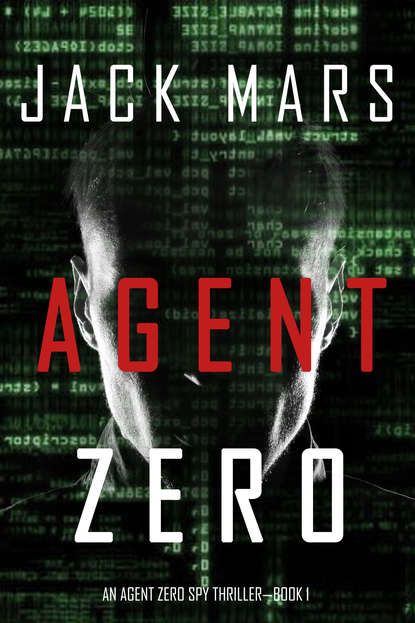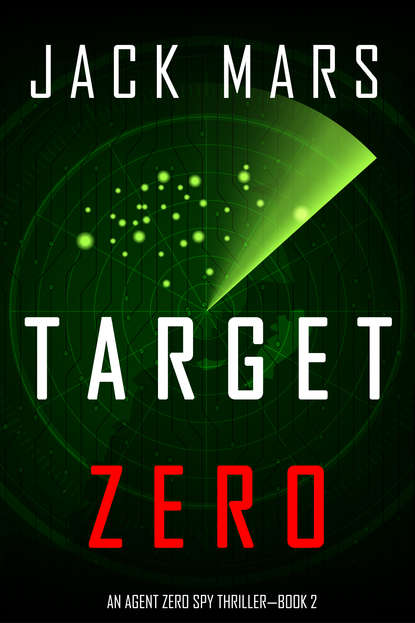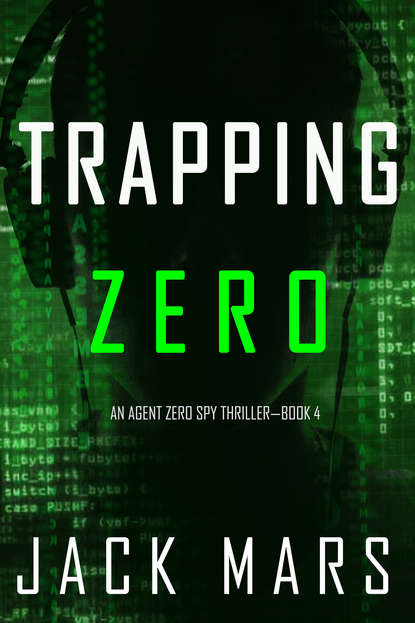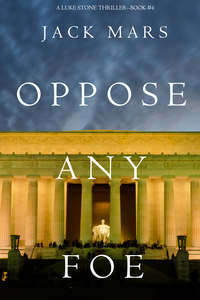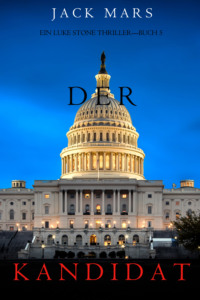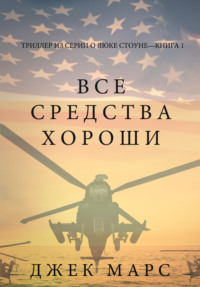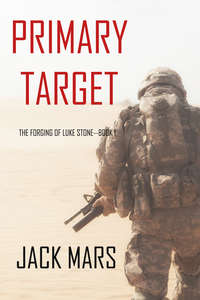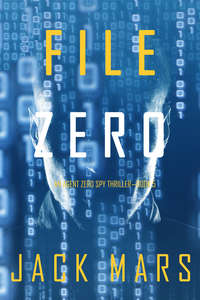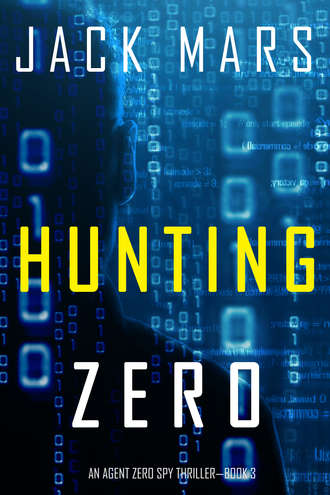
Полная версия
Hunting Zero
CHAPTER SIX
Reid headed south on the interstate, trying hard to ride the line between speeding and getting there quickly as he headed toward the rest stop where Thompson’s truck had been ditched. Despite his anxiety to get a lead, find a clue, he was beginning to feel optimistic about being on the road. His grief was still present, sitting heavy in his gut as if he had swallowed a bowling ball, but now it was wrapped in a shell of resolution and tenacity.
Already he was feeling the familiar sensation of his Kent Steele persona taking the reins as he barreled down the highway in the black Trans Am, a trunk full of guns and gadgets at his disposal. There was a time and place to be Reid Lawson, but this wasn’t it. Kent was their father too, whether the girls knew it or not. Kent had been Kate’s husband. And Kent was a man of action. He didn’t wait around for the police to find a lead, for some other agent to do his job.
He was going to find them. He just needed to know where they were going.
The interstate heading south through Virginia was mostly straight, two lanes, lined on both sides with thick trees, and thoroughly monotonous. Reid’s frustration grew with every passing minute that he didn’t get there fast enough.
Why south? he thought. Where would Rais be taking them?
What would I do if I was him? Where would I go?
“That’s it,” he said aloud to himself as a realization struck him like a blow to the head. Rais wanted to be found—but not by the police or the FBI or another CIA agent. He wanted to be found by Kent Steele, and Kent Steele alone.
I can’t think in terms of what he would do. I have to think of what I would do.
What would I do?
The authorities would assume that since the truck was found south of Alexandria, that Rais was taking the girls further south. “Which means I would go…”
His musing was interrupted by the blaring tone of the burner phone in the center console.
“Go north,” Watson said immediately.
“What did you find?”
“There’s nothing to find at the rest stop. Turn it around first. Then we’ll talk.”
Reid didn’t have to be told twice. He dropped the phone into the console, downshifted into third, and jerked the wheel to the left. There weren’t many cars on the highway at this time of day on a Sunday; the Trans Am crossed the empty lane and skidded sideways into the grassy median. Its wheels did not screech against the pavement or lose purchase when the ground turned soft beneath them—Mitch must have installed high-performance radial tires. The Trans Am fishtailed across the median, the front end spinning only slightly as it kicked a cascade of dirt out behind it.
Reid straightened the car as he crossed the barren narrow strip between stretches of highway. As the car found asphalt again, he popped the clutch, shifted up, and slammed down on the pedal. The Trans Am shot forward like a bolt of lightning into the opposite lane.
Reid fought down the sudden exhilaration that spiked in his chest. His brain reacted strongly to anything adrenaline producing; it craved the thrill, the fleeting possibility of losing control and the galvanizing pleasure of gaining it back.
“Heading north,” Reid said as he plucked up the phone again. “What did you find?”
“I’ve got a tech monitoring the police airwaves. Don’t worry, I trust him. A blue sedan was reported abandoned at a used car lot this morning. In it they found a purse, with IDs and cards matching the woman that was killed at the rest stop.”
Reid frowned. Rais had stolen the car and ditched it quickly. “Where?”
“That’s the thing. It’s about two hours north of your current location, in Maryland.”
He scoffed in frustration. “Two hours? I don’t have that kind of time to waste. He’s already got a big lead on us.”
“Working on it,” Watson said cryptically. “There’s more. The dealership says there’s a car missing from their lot—a white SUV, eight years old. We have nothing to track it with other than waiting for it to get spotted. Satellite imaging would be like a needle in a haystack…”
“No,” Reid said. “No, don’t bother. The SUV will mostly likely be another dead end. He’s toying with us. Changing direction, trying to throw us off from wherever he’s really taking them.”
“How do you know that?”
“Because that’s what I would do.” He thought for a moment. Rais already had a lead on them; they needed to get ahead of his game, or at least on par with it. “Have your tech look into any cars reported stolen in the last twelve hours or so, between here and New York.”
“That’s a pretty wide net to throw,” Watson noted.
He was right; Reid knew that a car was stolen about every forty-five seconds in the US, amounting to hundreds of thousands each year. “All right, exclude the top ten most frequently stolen models,” he said. As much as he didn’t want to admit it, Rais was smart. He would likely know which cars to avoid and which to aim for. “Scratch off anything expensive or flashy, bright colors, distinguishing features, anything the cops would find easily. And, of course, anything new enough to be equipped with GPS. Focus on locations that wouldn’t have many people around—vacant lots, closed businesses, industrial parks, that sort of thing.”
“Got it,” Watson said. “I’ll call you back when I have info.”
“Thanks.” He stashed the phone in the center console again. He didn’t have two hours to burn driving the highways. He needed something faster, or a better lead on where his girls might be. He wondered if Rais had once again changed direction; perhaps headed north just to turn west, heading inland, or even going south again.
He glanced over at the lanes of southbound traffic. I wonder if I could be passing them right now, right next to me. I’d never know it.
His thoughts were suddenly drowned out by a piercing yet familiar sound—the steady rising and falling of a wailing police siren. Reid swore under his breath as he glanced in the rearview mirror to see a police cruiser tailing him, its red and blue lights flashing.
Not what I need right now. The cop must have spotted him cross the median. He looked again; the cruiser was a Caprice. 5.7-liter engine. Top speed of a hundred and fifty. I doubt the Trans Am can maintain that. Even so, he wasn’t about to pull over and waste precious time.
Instead he slammed the pedal down anew, jumping from the previous eighty-five he was doing up to an even hundred miles an hour. The cruiser kept pace, leaping up in speed effortlessly. Still Reid kept both hands on the wheel, his hands steady, the familiarity and excitement of a high-speed chase returning to him.
Except this time he was the one being chased.
The phone rang again. “You were right,” Watson said. “I got a… wait, is that a siren?”
“Sure is,” Reid muttered. “Anything you can do about this?”
“Me? Not on an unofficial op.”
“I can’t outrun him…”
“But you can outdrive him,” Watson replied. “Call Mitch.”
“Call Mitch?” Reid repeated blankly. “And say what exactly…? Hello?”
Watson had already hung up. Reid swore under his breath and skirted around a minivan, swerving back into the left lane with one hand as he thumbed the flip phone. Watson told him that he’d programmed a number for the mechanic into the phone.
He found a number labeled with only the letter “M” and called as the siren continued to blare behind him.
Someone answered, but didn’t speak.
“Mitch?” he asked.
The mechanic grunted in response.
Behind him, the cop moved into the right lane and accelerated, trying to get up next to him. Reid jerked the wheel quickly and the Trans Am slid flawlessly into the lane, blocking the cop car. Behind the closed windows and the roar of the engine he could faintly hear the echo of a PA system, the trooper ordering him to pull over.
“Mitch, I’m, uh…” What am I supposed to say? “I’m doing about one-ten down I-95 with a cop on my tail.” He glanced in the rearview mirror and groaned as a second cruiser pulled onto the highway from a speed-trap vantage point. “Make that two.”
“All right,” Mitch said gruffly. “Give it a minute.” He sounded tired, as if the notion of a high-speed police chase was as blasé as a trip to the grocery store.
“Give what a minute?”
“Distraction,” Mitch grunted.
“I’m not sure I have a minute,” Reid protested. “They’ve probably already got the license plate.”
“Don’t worry about that. It’s a fake. Unregistered.”
That’s not going to inspire them to call off the pursuit, Reid thought glumly. “What sort of a distraction… hello? Mitch?” He threw the phone onto the passenger seat irritably.
With both hands back on the wheel, Reid veered around a pickup truck, back into the fast lane, and put the pedal fully down. The Trans Am responded with zeal, roaring forward as the needle leapt to one-thirty. He darted around much slower traffic, weaving in and out of both lanes, using the shoulder, but still the pair of cruisers kept up.
I can’t outrun them. But I can outdrive them. Come on, Kent. Give me something. It had happened several times over the last month, ever since the memory suppressor had been removed, that a particular skill set from his former life as a CIA operative would come rushing back in times of need. He didn’t know he spoke Arabic until he was faced with terrorists torturing him for information. He didn’t know he could fend off three killers hand-to-hand until he had to fight for his life.
That’s it. I just have to put myself in a desperate situation.
Reid grabbed the emergency brake just behind the gearshift and yanked it upward. There immediately came an awful screech from inside the Trans Am and the smell of something burning. At the same time, his hands spun the wheel to the right and the Trans Am fishtailed tightly, its back end once again crossing into the median as if he were trying to spin in the opposite direction.
The two cop cars followed suit, slamming on their brakes and trying to make the tight turnaround. But as they hit their brakes, facing south, Reid continued into the spin, doing a complete three-sixty. He pushed down the emergency brake, shifted, and slammed the gas again. The sports car jolted forward and left the confused cops quite literally in the dust.
Reid let out a whoop of victory as his heart thrummed in his chest. His excitement, however, was short-lived; he had his foot firmly on the gas, trying to maintain his speed, but the Trans Am was losing power. The speedometer needle dropped to ninety-five, then ninety, falling fast. He was in fifth gear, but his e-brake maneuver must have blown a cylinder, or else kicked dirt up into the engine.
The earsplitting wail of sirens made the bad news worse. The two cruisers were behind him and catching up fast, now joined by a third. The highway traffic moved aside to clear a path as Reid had to weave in and out of lanes, desperately trying to keep the needle up to little avail.
He groaned. It was going to be impossible to shake the cops at this rate. They were no more than sixty yards behind him and gaining. The cruisers formed a triangle, one in each lane with the third splitting the line behind them.
They’re going to try the PIT maneuver—box me in and force the car sideways.
Come on, Mitch. Where’s my distraction? He had no idea what the mechanic had planned, but he could really use it at the moment as the cruisers closed the gap on the failing sports car.
He got his answer an instant later as something huge leapt into his peripheral vision.
From the southbound side of the highway, a tractor trailer jumped the median doing at least seventy, its huge tires bouncing violently over the ruts in the grass. As it reached the pavement again—going the wrong direction—it teetered dangerously and the silver tank it was hauling tipped sideways, bearing down upon him.
CHAPTER SEVEN
For an instant, time slowed down as Reid found himself, and the entire car, engulfed in the shadow of an eighteen-wheeled machine that had all but left the ground.
In that oddly still moment, he could clearly see the tall blue letters stenciled down the side of the tanker—“POTABLE,” they read—as the truck bore down, poised to crush him, the Trans Am, and any hope of finding his girls.
His higher brain, the cerebrum, seemed to have shut itself off in the shadow of the enormous truck, yet his limbs moved as if of their own minds. Instinct took over as his right grabbed the e-brake again and pulled. His left hand spun the wheel clockwise, and his foot mashed the gas pedal against the rubber floor mat. The Trans Am turned sideways and darted out, parallel to the truck, back into the sunlight and out from beneath it.
Reid felt the impact of the truck crunching against the road more than he heard it. The silver tank struck the pavement between the Trans Am and the cop cars, closing in at less than thirty yards. Brakes squealed and the cruisers skidded sideways as the huge silver tank split open at the bolted seams and released its cargo.
Nine thousand gallons of clean water cascaded out and flowed over the police cars, shoving them back like an aggressive riptide.
Reid didn’t pause to see the fallout. The Trans Am was barely pushing seventy with the pedal to the floor, so he straightened out and headed further up the highway as best he could. The waterlogged troopers undoubtedly called in the conspicuous car with the unregistered plates; there would be more trouble ahead if he didn’t get off the road soon.
The burner rang, the screen displaying only the letter M.
“Thanks, Mitch,” Reid answered.
The mechanic grunted, as seemed to be his primary method of communication.
“You knew where I was. You know where I am now.” Reid shook his head. “You’re tracking the car, aren’t you?”
“John’s idea,” Mitch said simply. “Thought you might get yourself into some trouble. He was right.” Reid started to protest, but Mitch interrupted. “Get off at the next exit. Turn right on River Drive. There’s a park with a baseball field. Wait there.”
“Wait there for what?”
“Transportation.” Mitch hung up. Reid scoffed. The whole point of the Trans Am was supposed to be clandestine, staying off the agency’s grid—not to exchange the CIA for someone else that might track him.
But without it, you’d have been caught by now.
He swallowed his anger and did as he was told, guiding the car off the exit another half a mile up the interstate and toward the park. He hoped that whatever Mitch had in store for him was fast; he had a lot of ground to cover quickly.
The park was sparsely populated for a Sunday. In the baseball field a group of neighborhood kids were playing a pick-up game, so Reid parked the Trans Am in the gravel lot outside the chain-link fence behind first base and waited. He didn’t know what he was looking for, but he knew he had to move fast, so he popped the trunk, retrieved his bag, and waited beside the car for whatever Mitch had planned.
He had a suspicion that the grizzled mechanic was more than just a CIA asset. He was “an expert in vehicle procurement,” Watson had said. Reid wondered if Mitch was a resource, someone like Bixby, the eccentric CIA engineer who specialized in weapons and handheld gear. And if that was the case, why was he helping Reid? No memories sparked in his head when he thought of Mitch’s gruff appearance, his grunting demeanor. Was there a forgotten history there?
The phone rang in his pocket. It was Watson.
“You good?” the agent asked.
“Good as I can be, all things considered. Though Mitch’s idea of a ‘distraction’ might be a little overambitious.”
“He gets the job done. Anyway, your hunch was right. My guy found a report of a twelve-year-old Caddy stolen from an industrial park in New Jersey this morning. He snapped a satellite image of the place. Guess what he saw?”
“The missing white SUV,” Reid ventured.
“Right,” Watson confirmed. “Sitting in the parking lot of some junk heap called the Starlight Motel.”
New Jersey? His hope fell. Rais had taken his girls even further north—his two-hour drive just became at least three and a half to have any hope of catching up. He might be taking them into New York. A major metro area, easy to get lost in. Reid had to get a better lead on him before that happened.
“The agency doesn’t know what we know yet,” Watson continued. “They have no reason to link the stolen Caddy to your girls. Cartwright confirmed that they’re following the leads they’ve got and sending Strickland north to Maryland. But it’s just a matter of time. Get there first and you’ll have a head start on him.”
Reid deliberated for a moment. He didn’t trust Riker; that much was clear. In fact, the jury was still out even on his own boss, Deputy Director Cartwright. But… “Watson, what do you know about this Agent Strickland?”
“I only met him once or twice. He’s young, a bit eager to please, but seems decent. Maybe even trustworthy. Why, what are you thinking?”
“I’m thinking…” Reid couldn’t believe he was about to suggest it, but it was for his daughters. Their safety was the most important thing, no matter what the perceived cost. “I’m thinking that we shouldn’t be the only ones with this intel. We need all the help we can get, and while I don’t trust Riker to do the right thing, maybe Strickland will. Could you get information to him anonymously?”
“I think I could, yeah. I’d have to filter it through some of my asset connections, but it’s doable.”
“Good. I want to get him our intel—but after I’ve been there to see for myself. I don’t want him gaining a lead on me. I just want someone to know what we know.” More specifically, he wanted someone who wasn’t Cartwright to know what they knew. Because if I fail, I need someone to succeed.
“If you say so, sure.” Watson was silent for a moment. “Kent, there’s one more thing. Back at that rest stop, Strickland found something…”
“What? What did he find?”
“Hair,” Watson told him. “Brown hair, with the follicle still attached. Pulled out by the root.”
Reid’s throat ran dry. He didn’t believe that Rais wanted to kill the girls—he couldn’t allow himself to believe that. The assassin needed them alive if he wanted Kent Steele to find them.
But the thought was of little comfort as unwelcome images invaded Reid’s thoughts, scenes of Rais grabbing his daughter by a fistful of hair, forcing her to go where he wanted. Hurting her. And if he was hurting them in any way at all, Reid was going to hurt him in every way.
“Strickland didn’t think much of it,” Watson continued, “but the police found more of it in the back seat of the dead woman’s car. Like someone left them there on purpose. Like a…”
“Like a clue,” Reid murmured. It was Maya. He just knew it. She was smart, smart enough to leave something behind. Smart enough to know that the scene would be swept over carefully and her hairs would be found. She was alive—or at least she had been when they were there. He was simultaneously proud that his daughter was so keen while rueful that she would ever have to think to do such a thing in the first place.
Oh god. A new realization took its place immediately: If Maya had purposely left her hair in the rest stop bathroom, then she was there when it happened. She had watched that monster murder an innocent woman. And if Maya was there… Sara might have been too. They had both been affected, mentally and emotionally, by the events of February, on the boardwalk; he didn’t want to think of the trauma going through their minds now.
“Watson, I have to get to New Jersey fast.”
“Working on it,” the agent replied. “Just stay put, it’ll be there any minute.”
“What will be here?”
Watson answered, but his response was drowned out by the sudden, startling chirp of a siren directly behind him. He spun as a police cruiser crunched over the gravel lot toward him.
I don’t have time for this. He snapped the phone shut and slipped it into his pocket. The passenger’s side window was down; he could see that there were two officers inside. The car pulled right up alongside his and the door swung open.
“Sir, put the bag on the ground and your hands on your head.” The officer was young, with a military-style high and tight fade and aviator shades over his eyes. Reid took notice that one hand was on the holster of his service pistol, the button clasp undone.
The driver got out as well, older, around Reid’s age with a shaved head. He stood behind his open door, his hand also hovering near his belt.
Reid hesitated, unsure of what to do. Local police must have heard the APB from the troopers. It couldn’t have been difficult to spot the Trans Am with the fake plates parked so openly next to the baseball field. He scolded himself for being so careless.
“Sir, put the bag down and hands on your head!” the young officer shouted forcefully.
Reid had nothing to threaten them with; his guns were in the bag, and even if he had one he wasn’t about to shoot anyone. As far as these cops were aware, they were just doing their job, detaining a fugitive from a high-speed chase that had incapacitated three cars and, in all likelihood, still had the northbound lanes of I-95 shut down.
“This isn’t what you think.” Even as he said it, he lowered the bag to the gravel slowly. “I’m just trying to find my daughters.” Both arms came up, his fingertips touching just behind his ears.
“Turn around,” the young officer ordered. Reid did so. He heard the familiar clinking of handcuffs as the cop pulled a pair loose from the pouch on his belt. He waited for the cold bite of steel on his wrist.
“You have the right to remain silent…”
As soon as he felt contact, Reid sprang into action. He spun, grabbed the officer’s right wrist with his own, and twisted it upward at an angle. The cop cried out in both surprise and pain, though Reid was careful not to twist far enough to break it. He wasn’t going to injure the officers if he could help it.
In the same motion he grabbed the loose cuff with his left hand and snapped it around the officer’s wrist. The driver had his gun out in an instant, shouting angrily.
“Back away! On the ground, now!”
Reid shoved forward with both arms and sent the young officer stumbling into the open door. It swung shut—or tried to, pushing the older cop backward. Reid tucked into a roll, coming up on his knees right beside the man. He snapped the Glock out of the cop’s grip and tossed it over his shoulder.
The younger cop straightened and tried to yank his pistol loose. Reid grabbed the empty, swinging half of the handcuffs dangling from the officer’s wrist and pulled, throwing the man off balance again. He looped the cuffs through the open window, yanking the cop into the door, and snapped the open loop of steel around the older officer’s wrist.
As the pair struggled against each other and the door of the cruiser, Reid tugged the younger cop’s pistol free and aimed it at them. They fell still immediately.
“I’m not going to shoot you,” he told them as he retrieved his bag. “I just want you to stay quiet and don’t move for a minute or so.” He leveled the gun at the older officer. “Put your hand down, please.”
The cop’s free hand fell away from his shoulder-mounted radio.
“Just put down the gun,” the younger officer said, his uncuffed hand out in a pacifying gesture. “Another unit is on its way. They will shoot you on sight. I don’t think you want that.”
Is he bluffing? No; Reid could hear sirens wailing in the distance. About a minute out. Ninety seconds at best. Whatever Mitch and Watson had planned, it needed to arrive now.
The boys on the baseball field had paused their game, now clustered behind the nearest concrete dugout and peering out in awe at the scene mere yards from them. Reid noticed in his periphery that one of the boys was on a cell phone, likely reporting the incident.
At least they’re not filming it, he thought glumly, keeping the gun trained on the two cops. Come on, Mitch…
Then—the younger cop frowned at his partner. They glanced at each other and then skyward as a new sound joined the distant screaming sirens—a whining hum, like a high-pitched motor.


